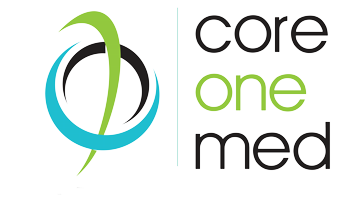What Happens If You Don't Pay Medical Bills?
An In-Depth Guide by Core One Med
Understanding Medical Debt: The Basics
What Is Medical Debt?
Medical debt happens when you get a bill for healthcare and can’t pay it right away. This can come from a sudden accident, a routine checkup that costs more than you thought, or a hospital visit that insurance doesn’t fully cover. Sometimes, even with insurance, you might face big bills if you have a high deductible or the doctor isn’t in your plan. It’s like getting a surprise party – only instead of cake, you get an invoice.
The Prevalence of Medical Debt in the United States
Medical debt is more common than most people think. Millions of Americans have some form of unpaid medical bill. Even folks with insurance can find themselves owing money they didn’t expect. Maybe you paid your premium every month, but then a single hospital stay left you with a bill bigger than your car. You’re not alone – this is a problem that touches families all over the country.
Need help with medical bills? Call Core One Med at 949-507-3011 today.
How Medical Billing Works
The Journey of a Medical Bill
Let’s walk through what happens after you see a doctor. First, the provider sends the bill to your insurance. The insurance company decides what they’ll pay and what you owe. Sometimes, they cover most of it. Other times, you’re left with a chunk to pay yourself. If the doctor isn’t in your network, or if you get care in an emergency, you might get a “surprise” bill that’s much higher than you expected. And yes, billing mistakes happen. Maybe you’re charged twice for the same thing, or for a service you never got. That’s why it’s smart to check your bill line by line.
Do You Really Owe the Bill?
Before you reach for your wallet, make sure the bill is correct. Ask for an itemized statement. Look for errors, duplicate charges, or things you don’t recognize. If something looks off, call the provider or your insurance company to ask questions. A simple phone call can sometimes fix a big mistake. Don’t just assume every charge is right – mistakes are more common than you’d guess.
The Consequences of Ignoring Medical Bills
Immediate Consequences: Late Fees and Interest
If you don’t pay by the due date, the provider might tack on late fees or interest. Suddenly, what started as a manageable bill grows bigger. It’s like forgetting about leftovers in the fridge – wait long enough, and things get worse.
Escalation: Debt Collection Agencies
If a bill sits unpaid for too long, the provider may send it to a collection agency. These agencies will contact you – sometimes a lot. They might call, send letters, or even show up on your credit report. You have rights, though. Debt collectors can’t harass you, and you can ask them to prove you owe the amount they claim. Sometimes, you can work out a deal to pay less than the full amount.
Impact on Your Credit Report and Score
Unpaid medical bills can show up on your credit report. This can lower your credit score, making it harder to get a loan or rent an apartment. The rules have changed recently, and some medical bills don’t show up as quickly or stay as long. But if you ignore a big bill, it can still do real damage to your score. Always check your credit report to see what’s there.
Not sure what to do about medical debt? Call us now: 949-507-3011.
What You Can Do
So, you’ve opened the mailbox and there it is – a medical bill that makes your eyes widen. Take a breath. You’re not alone, and there are clear steps you can take to avoid bigger headaches later.
Step One: Review and Verify Your Bill
Start by checking every line on your bill. Look for anything that seems off – charges for services you didn’t get, duplicate items, or wild numbers that don’t match what you expected. If something looks odd, ask for an itemized bill. Hospitals and clinics must provide this if you request it. Sometimes mistakes happen, and catching them early can save you a lot of money.
If you spot an error, call the billing office. Stay calm and polite. Explain what you see and ask for a correction. Call them if your insurance was supposed to cover something but didn’t. Keep notes of who you talk to and what they say. It’s easy to lose track, especially when you’re juggling phone calls and paperwork.
Step Two: Explore Your Payment and Relief Options
Insurance and Financial Assistance
Before you pay anything, double-check what your insurance covers. Sometimes claims are denied by mistake, or a missing piece of information can hold things up. If your insurance denies a claim, you can appeal. The process isn’t fun, but it’s worth the effort.
If you still owe money after insurance, ask about financial assistance. Many hospitals offer help for people who can’t pay the full amount. This is sometimes called “charity care.” You might qualify even if you have a job or insurance. Don’t be shy – these programs exist for situations like yours.
Negotiating With Providers
If you can’t pay the full bill, ask about a payment plan. Most providers would rather get paid slowly than not at all. You can also try to negotiate the total amount. It’s not rude to ask for a discount, especially if you’re paying cash or facing hardship. If you make an agreement, get it in writing. This protects you if someone new takes over your account.
Seeking Outside Help
If you’re still stuck, consider talking to a credit counselor. Nonprofit agencies can help you make a plan and sometimes talk to the provider for you. There are also grants and charities that help with medical bills, especially for certain illnesses or emergencies. A little research can go a long way.
Step Three: What If You Still Can’t Pay?
Sometimes, even after you’ve tried everything, the bill is just too much. Here’s what to consider:
Debt Consolidation and Loans
Some people combine their medical bills into a single loan with a lower monthly payment. This can make things easier to manage, but be careful. Loans come with interest, and missing payments can hurt your credit.
Bankruptcy as a Last Resort
If you truly can’t pay, bankruptcy may wipe out your medical debt. This is a big decision with lasting effects on your credit and future borrowing. Talk to a professional before you go down this road.
Special Considerations
Medical Debt and Your Credit: The Latest Rules
Recent changes mean most medical bills under $500 no longer show up on credit reports. Larger bills may still appear if left unpaid for a long time. This helps protect your credit score, but it doesn’t erase the debt itself.
Protecting Yourself: Legal Rights and Resources
You have rights when dealing with debt collectors. They can’t harass you or call at odd hours. You can ask for proof of the debt and dispute errors. Some states offer extra protection, so check your local laws if things get tough.
Take Action, Protect Your Financial Health
Medical bills can feel overwhelming, but you have options. Review your bills, ask questions, and don’t be afraid to seek help. The sooner you act, the more choices you have. At Core One Med, we believe everyone deserves clear answers and support during tough times. If you need guidance, reach out – help is closer than you think.
Frequently Asked Questions (FAQs)
No, you can’t go to jail for unpaid medical bills. Debt is a civil matter, not a criminal one.
Unpaid medical debt can stay on your credit report for up to seven years, but recent rules have made it less likely for smaller bills to appear.
Medical debt often comes from unexpected events and may be treated more leniently by lenders and credit agencies.
In rare cases, if a creditor sues and wins, they could place a lien on your property. This is not common, but it’s possible for large debts.
The provider may send your bill to collections, which can affect your credit and lead to legal action.
They don’t disappear on their own. After a certain period, they may “fall off” your credit report, but you may still owe the money.
Most bills under $500 no longer appear on credit reports, but you still owe the money and may get collection calls.
Ignoring bills can make things worse. Interest, fees, and collection actions can add up quickly.









